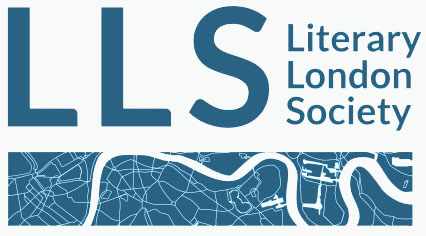We welcome submissions to The Literary London Journal. We will consider all submissions that meet the aims of the Literary London Society, which is to ‘foster interdisciplinary and historically wide-ranging research into London literature in its historical, social, and cultural contexts, to include all periods and genres of writing and representation about, set in, inspired by, or alluding to central and suburban London and its environs, from the city’s roots in pre-Roman times to its imagined futures’.
All submissions are blind peer-reviewed by experts in the field. This means that articles are published on the quality of the research rather than on the reputation of the author. We therefore welcome excellent articles from contributors at all stages of their career, from graduate student to emeritus professor. We also welcome proposals for edited special editions of the journal.
No charges for submission or processing (APCs) apply when submitting articles to be considered for publication.
All submissions and proposals should be addressed to the Editor, Nick Bentley, using the following email address: journal at literarylondon dot org
Style, Format, and Punctuation
Submissions should normally be between 5000 and 8000 words in length. Essays should be sent as an attachment in a commonly available editable format such as RTF or Microsoft Word. PDF submissions are not accepted. Please format your script in accordance with the following guidelines:
- The style guide is the Modern Humanities Research Association (MHRA) style guide. This is available for free download at http://www.mhra.org.uk/Publications/Books/StyleGuide/index.html.
- Do, however, use in-text author-short title-page citation rather than footnotes for citations and then provide a full bibliograpy of all texts cited. For example, in-text citations should follow the format (Dickens: Bleak House, 273) or (Ackroyd: London, 72). These citations should be placed at the end of sentences, never in the middle. The bibliography should follow MHRA conventions (which are similar to Chicago style).
- Use British spelling and punctuation conventions throughout. In particular, a) use single quotation marks for quotations, and double quotation marks for quotes-within-quotes; b) note that punctuation is included within quotation marks only if that punctuation appears in the original quotation. If you have added a comma or a full stop which is not in the original text, it must appear outside the quotation marks.
- Please avoid long or discursive footnotes since these add unneccessary complexity and distract the reader from your argument. Follow the rule that if a comment is important to the argument, it belongs in the main text. If it is not important to the argument, it should be omitted entirely.
- Take care with hyphens, en-dashes, and em-dashes. A hyphen (-) is used to connect two words (middle-class), an en-dash (–) is used to indicate a range of numbers (pp. 247–54), and an em-dash is used to connect closely related ideas or in parentheses (the dog—which was very hungry—ate all the food). Note that neither hyphens nor dashes require spaces around them.
- Please write out smaller numbers in full (‘ten’ rather than ’10’). Please spell out centuries in full (‘the eighteenth century’, NOT ‘the C18th’). ‘Seventy per cent’, NOT ‘70%’. Numbers over 100 can be given in figures.
- If you are including images, use low-resolution images or embedded images in your submission file at first. We will ask for high-resolution files once we prepare the final copy. Please ensure you have obtained the appropriate permissions for any images you use.
- Despite the above, because this is an online journal we can be quite flexible about images and other unusual formats, but please do contact the editor first if you plan to use an unusual format or if you would like to include many images.
Process
When you submit your article to the editors, you will receive an acknowledgement, normally within two weeks. The editors will read your article to see if the subject is suitable for the Literary London Journal. If the topic is not one the journal covers it will be returned to you at this point, regardless of quality. If your essay is on an appropriate topic, it will be sent out to two readers for peer review. This can take two to three months, so please bear with us at this point. Once the editors have received both reviewers’ reports, they will make a decision on your article. The article may be immediately accepted or rejected, or you may be asked to make specific changes. Whatever the outcome, you will receive some feedback at this point.
If you have any queries or require any clarification on the above, please contact the Editor, Nick Bentley, using the following email address: journal at literarylondon dot org
